Queer Eye’s Fab Five on Season Two, what makes them proud, and their first trans makeover
Antoni, Bobby, Jonathan, Karamo, and Tan talk diversity, making over Trump, and how they've handled the show's massive success

When Netflix first announced they were rebooting Queer Eye, eyebrows were raised. What possible reason could there be, in the era of Trump, of reviving a show about five gay men giving straight guys makeovers?
The skeptics, it turns out, were wrong.
When the first season of the new Queer Eye debuted in February, it became an instant cultural phenomenon. As it transpired, five gay men spending time getting to know and improving the lives of people in the time of Trump was exactly what we needed. Gone was any of the superficiality of the original Bravo series. In its place came respect, conversation, contemplation, and the reality TV equivalent of intensive therapy. Queer Eye was no longer about giving a straight guy a new look and some sophistication. It was about making each participant the best, most confident version of themselves.
Aiding these efforts are a new Fab Five, a diverse mix of gay men whose chemistry and talents are part of why Queer Eye, which airs its second season on Netflix on June 15, has been such a success. Antoni Porowski, who worked for original Fab Five member Ted Allen, handles food. Bobby Berk is in charge of design. Jonathan Van Ness is the new grooming expert. Karamo Brown tackles culture. And Tan France replaces Carson Kressley as fashion guru.
As a sign of the difference in this new iteration, take Brown, who replaces Jai Rodriguez as “culture expert.” Whereas Rodriguez was occasionally criticized for his lack of input, Brown, a social worker and psychotherapist, has forged an integral role that blends counselor with personal coach. Or, as he puts it, “it wouldn’t lend to me saying, ‘Go to the museum, or here’s some Broadway tickets.’
“Some people say, ‘I don’t understand what Karamo does,’ because you can’t always see what I do,” he continues. “What I do is usually through conversations, it’s through art therapy. So those things, to the untrained eye, seem like, well this week he’s a dating expert and the next week he’s planning a wedding? No, everything that I do through the activity is to help them figure out why they had a fear before, so they can get over that and heal that and then move on. Because at the end of the day you can change your outwards, but it you haven’t changed your heart, your mind, your way of thinking, and dealt with those issues, then the change won’t sustain.”
Healing is a big part of the new Queer Eye. An early example came in the first season with Neal Reddy, an introvert who hid behind his beard and remained isolated in his apartment when not at work. By the end of the week, he was a different man — inside and out.
“We went from meeting a guy at the start of the week who couldn’t even make eye contact — it wasn’t an act for the camera. He could not make eye contact with us comfortably. He didn’t like to be touched,” says France. “By the end of the week he was fully engaged. He came in for hugs. And that was because of how much work and effort and time we put in that week.”
And things will keep getting better in season two. After Queer Eye‘s first season brought us AJ Brown, who came out to his stepmother in an emotional scene at the end of his transformation, the forthcoming season ups the diversity, kicking off with Queer Eye‘s first female participant, Tammye, while a later episode will feature the show’s first transgender participant, Skyler.
We spoke to the Fab Five to find out about the show’s increasing diversity, just what to expect from season two, and how they would deal with making over a certain orange being currently (and unfortunately) occupying the White House.

METRO WEEKLY: Why do you think the Netflix reboot of Queer Eye has been so successful?
BOBBY BERK: Right now, people are looking for something positive. There’s so much negativity in the news and the media, on your social media page, and at the water cooler, that I think people are gravitating towards anything that gives them hope and makes them feel good and shows that there is still a good side to humanity. To see people who are on the far left side of the spectrum walking into people’s homes who are clearly on the far right of the spectrum, and finding a commonality, creating a friendship, and being able to put politics aside — that’s really giving people hope right now. I think that’s one of the key reasons to its success.
ANTONI POROWSKI: Timing wise, it’s come at a really interesting point where there’s a lot of divisiveness. And it’s a show that really just focuses on kindness, a show that just focuses on purely helping people. There’s an innocence and a gentleness to it. It’s about lifting each other up and trying to help each other out. And we do that on and off the camera.
TAN FRANCE: It’s because we are so open about who we are as the “Fab Five.” We’re having real meaningful interactions with the heroes that we help. It’s the first version of a reality show that feels really real.
MW: How do you feel Queer Eye differs from the original?
TAN: Without the original, this show wouldn’t have been possible. When the original show was around, America was ready for a certain kind of gay representation, but I don’t think they were willing or ready to understand every facet of our community, and that we are just like everybody else. I think that it made sense to them that we were there to make things pretty.
I don’t think the original cast had the luxury of being able to talk about their personal lives. Cut to 15 years later, things have changed. Some rights have changed within in the U.S. We’re able to talk about our partners. We are able to get married. We’re able to adopt children. We’re able to talk about those things very openly. We’re having conversations that people want to hear.

BOBBY: Not to diminish the original show at all, because it definitely had its time and its place. I think it did so much for the gay community — I think it did so much for everyone, teaching people self-love, taking care of yourself. I hate to use the word normalizing, but it normalized gay people in the mainstream.
I think America was fine seeing gays on television because they were decorators, and they were hairdressers, and they were cooks, they were going to the theater. But if they had, God forbid, talked about their husbands or their children or their families, [many viewers] wouldn’t have been okay with that. We really wanted to take Queer Eye to a different level. We wanted people to really get to know us, to get to know our lives. Karamo, people know that he’s a single father of two, people know that Tan and I have both been married [to our partners] for over a decade, and that we are just like everybody else. We really wanted people to see that gay people aren’t just stereotypical characters that you see on TV. We’re real people just like anybody else.
MW: What would you say to members of the LGBTQ community who say you only offer a stereotyped view of gay culture?
BOBBY: The thing that I say to the LGBTQ community who say we only represent a stereotypical version of gays is: Have you watched the show?! Because we literally represent every color of the rainbow. There’s nothing stereotypical about any of us. I just challenge them to really step back and rethink what they think is stereotypical, because every single one of us, we’re just being us.
A lot of times Jonathan gets flack that he is a stereotypical gay. He’s not. He’s just him. He’s not trying to be anything other than exactly who he was born to be — loud and over the top and lovely and innocent and curious. He’s just being him. And he’s having a blast doing it. So, for the people who say that we’re stereotypical, I just think they’re wrong. I think the first Queer Eye was maybe a little bit more stereotypical — I don’t think it could have been anything else at the time. I don’t think straight America was ready to see gay people as anything other than gay stereotypes. It would have made them uncomfortable.
JONATHAN VAN NESS: I’ve heard that question several times, and it always feels kind of pointed and directed at me because I am more feminine and not afraid to express my femininity. Karamo is a man of color who I don’t think has any affectation to his voice in, say, how I do. I mean, he will queen out with the best of them, but visually, he’s not someone who carries himself the way I do. Nor Tan, nor Bobby. We represent a diverse group of men who are all really passionate about what they do. I think, lovingly, when people accuse the show of being homonormative, I think that a lot of those people need to, lovingly, dislodge the stick in their ass, because there are bigger problems facing our community.
KARAMO BROWN: First of all, any representation is something that helps us as a community. You might not see yourself in one of us as the five members of the cast, but someone else does see themselves. And for me, it’s important that they feel validated and seem visible. And if you don’t see yourself, we encourage you to reach out to us and we will try to use whatever power we have to make sure that, if there’s future seasons, we can help you to feel visible. Because at the end of the day, we are members of the community too, and we are not stereotypes, we’re authentically ourselves.
TAN: As far as I’m aware this is the most diverse, the most representative cast on a show like this. We’ve made massive strides in making sure that more of the gay community is represented. We have to remember there’s only five of us, so we can’t represent every member of our community with just five men. I like to believe we’re making a positive difference and a positive change. I think that it’s a common misconception that a show like this represents people who are just trying to make things pretty.
Don’t get me wrong, I understand that my category is fashion, but I do so much more on the show than just put somebody in a floral shirt. It’s about real human connection. We have very, very open honest conversations. And I think we tackle a lot more than just making things pretty. It’s definitely not just a makeover show. I like to believe that we’re representing the gay community very well. I like to believe that I’m representing the Middle Eastern community, immigrant community, and the British community very well.
MW: What can we expect from season two?
BOBBY: One of the biggest things people are going to notice with episode one is that we help our first woman. It was such a great place to start. Tammye was one of the most warm, loving people you could ever meet. We went in to help her, and in turn she helped us. It was a beautiful moment for a lot of us.
Another Queer Eye first is that we helped a trans guy. Not only are we proud of being able to help him like we’ve helped other people, but we were also able to use this episode to — I don’t want to say educate, because I don’t want to sound preachy — shine a light on the struggles that our trans brothers and sisters go through. Honestly, the living hell that a lot of them go through trying to figure out who they are. And when they do finally figure out who they are, to go through what they have to go through to become the person they were born to be. A lot of times that includes having your back turned on you by your entire family and your friends and everyone in your life who said they loved you. I hope we’re able to shine a light on that struggle and, in turn, maybe help that struggle get a little easier. Because with knowledge comes power, and when people have more knowledge about a situation, they are less scared of it and more accepting of it.

KARAMO: Our first female hero is going to be identifiable across so many different people. She is empathic and loving. Most people would perceive her as a southern black woman who would probably not support the LGBT community because she is ingrained in religion, but it shows that at the end of the day, religion for her — and what it should be for most people, in my opinion — should be about love and support. And so I think people are going to be touched by her story.
With our trans episode, it shows, first of all, the breadth of experience that LGBT people have within our own community. Not all gay men understand the trans experience, and you see that within the five of us. I, for instance, have worked at an LGBT center as a social worker, so it was very involved with the trans community and have many trans friends. But on the opposite side you have Tan, who has not ever had a personal relationship with someone in the trans community. I think to see that allows people to say, “Oh, it’s okay to ask questions and it’s okay to approach the trans community from a way that is loving and respectful.” To say, “I want to learn more and please, understand I’m not trying to offend you, I just want to know so that I can understand where my ignorance, where my point of view is coming from, so that I can help and be there for you.” I think it’s going to teach a lot of people.
JONATHAN: I was really, really, really fortunate to have a lot of trans friends and clients in my life, over the last nine years of living in Los Angeles. So for me, meeting Skyler, meeting a trans man, wasn’t unique. It was unique working with a trans client on an international television show, and wanting to make sure that I approached Skyler’s episode with enough respect. I mean, it’s really vulnerable when you’re going into a situation like Queer Eye as the hero, and I wanted to make sure that he felt comfortable. He was already going through a vulnerable situation in his transition. Skyler is such an incredible person. We’re so excited to share his story.
ANTONI: Sometimes heroes come about and we deal with certain topics that we can relate to, like Neal Reddy from season one — he’s someone who has openly struggled with depression and with being really down and being stuck in a rut. That’s something that I can relate to in a very personal, intimate way.
Then there’s someone like Skyler, who I didn’t think I could relate to any less. There’s so much I didn’t know about the transgender community and what that life is. We get to come in and have people like Karamo and Jonathan, who are more versed, teach us and impart their wisdom on us. Then you have people like Tan and I who don’t necessarily know as much, and we get to ask the questions and be curious students. It’s about knowing when we can be the expert and when we can be there to learn.
With Tammye, it was a really good example of us really showing up and being a service to her. I wasn’t gonna teach her how to prepare food for two hundred people for her homecoming. I was going to take her recipe, and while she was getting ready with Tan, make that pasta salad made entirely out of condiments and make her life a little easier, so she has one thing less to worry about.
What so interesting, and what never gets old, is that the heroes all have such different stories. I think it’s a testament to the incredible casting [the producers] have done. They picked such interesting individuals that we can all relate to, even if we have very different upbringings or socioeconomic status or cultural background. The universality of our feelings is always the same and that shines through in every single episode.
TAN: I think it’s great that we’re tackling the trans community and women. I didn’t want it to just be men. I think that could have become really stale, really quickly. I think it’s important to show that we aren’t saying that gay men know better than everybody else when it comes to these five categories. I think it’s important that we show that everybody could do with a bit of extra love and support. An opportunity to talk about how they feel and what they want for their hopes and dreams and to better their lives. I think that it’s important that we continue on this way and that we make the show as diverse as possible so that we are being as inclusive as possible.

MW: What’s your favorite part of transforming a participant?
ANTONI: Selfishly, if I make something that’s good and if they take a bite of it and get excited by it. There’s so much joy that comes from me making something and then having someone be like “that’s freaking delicious,” whether it’s simple or whether it’s complex. In a more emotional way, there is something pretty incredible about having somebody walk into their new home. That’s the place where they’re going to be spending every single night. We spend a lot of time there. It’s where we sleep. It’s where we raise our families. It’s where we interact with our loved ones. Your home is your sanctuary. That’s where you spend so much of your time. It’s where life happens. For them to come and be like, “Oh, my gosh, I’m gonna get to sit on this couch every night and watch this beautiful TV and look at all these beautiful little accessories that Bobby’s design team has left for me?” — that part is really amazing.
JONATHAN: I’m always so excited to see their house. It’s like Bobby has just done the “Extreme Home Makeover: Queer Eye Edition.” That’s the part that makes me cry.
BOBBY: For me, it’s finding the personal things that I know will matter to them, the personal mementos and the moments. I find out tidbits about them, and I’m most proud of being able to incorporate things that really make it feel like they’re home. When we leave, they don’t feel like they’re in the home of a stranger. They feel like they’re in their home that’s just been elevated.
KARAMO: It’s having them have these emotional cathartic cries. For me, as a former social worker and psychotherapist, I love seeing people have breakthroughs in their life. So that was my role on the show was to say, “How can we help you get past the fears, anxiety that you have, interrupt that so you can grow into a new way?” Seeing someone cry can sound, you know, a little like, “Uh, why do you wanna see someone cry?” But it’s not that — a cry is a physical representation of them having a breakthrough of getting to a next level in their lives. I love seeing that.
TAN: I think it’s really powerful to put somebody in something for them to see themselves in a way they’ve never seen themselves before. They stand a different way. It’s so cheesy, but they really do seem so much more confident. I see it when they look at themselves in the mirror. That’s a lovely feeling for me.
MW: Have you experienced any homophobia filming the show?
ANTONI: Not really. There is a certain level of discomfort that comes with seeing a Trump banner and what that stands for and what that person represents or seeings guns. Especially being Canadian, where we have very strict gun control laws. That part definitely makes me a little uncomfortable, but we always felt safe under production’s helm.
KARAMO: I did. It wasn’t from any of the participants or our heroes, but we were in the south, and I’m a gay black man who is very proud of who I am and proud of all my intersexualities and some people don’t appreciate the pridefulness that I have and that I exude. And there would be comments as we walk down the street or in restaurants. But for all the negative comments that I might have received from random strangers who didn’t have the courage to say it to my face, there were people who were very courageous who told me that they appreciated my strength, that they appreciated my pride. And these are people who are not just in the LGBT community — these are our allies, these are straight men and women of all different races, ages, that would just say thank you for you being you because it’s giving me the courage to be me.

MW: On a personal note, what was your coming out like?
TAN: I came out when I was 17. I think it’s always difficult for a person to come out whether you’re younger or older. But I couldn’t really hide who I was because I felt so strongly about who I was. I was very confidently a gay boy at the time. I came out to my family and my friends. Thankfully, they were open and receptive and loving and understanding. It was a positive experience.
ANTONI: I didn’t really have one. I dated mostly women. I’ve had two real relationships with guys. I dated a guy and then I was back with women. Now I’ve been in a relationship with a man for several years. So, for me, it’s always sort of been more of a dynamic thing. I’ve always considered myself a little more along the spectrum and not defining myself in any type of category. I get asked about being bisexual a lot, but any label makes me uncomfortable because I feel like it limits me. I just don’t want to be limited. My taste in books and music and art changes all the time, even though of course I have my favorites. Maybe with who I’m attracted to, who knows what’s gonna happen in the future? I’d just rather keep it as something secondary.
BOBBY: I left home at 15, before I came out. I grew up in a very small, religious town in a religious family. Coming out wasn’t really an option. But also, for me, staying in the closet was also not an option. I was kind of at the point in my life to where I couldn’t wear a mask any longer. I couldn’t live my life completely isolated from everyone. There wasn’t really one person in the world that really, truly knew who I was. And there wasn’t one person in the world that I could really, truly be open with. That creates a very lonely life. I couldn’t do it anymore. It was all or nothing. Either I left and came out or I stayed and probably didn’t continue living too much longer. It was a life decision for me.
JONATHAN: I came out early. I started getting asked the question if I was gay in like sixth or seventh grade. I’m a very bad actor, also physically incapable of not sounding like a thorough homosexual. [Laughs.] It was unavoidable, that coming out moment for me. My dad had very straight conversations with me about sexual health, and my mom was really worried for my soul. I remember my mom got me a book called “Openly Gay, Openly Christian.” She really didn’t want me to go the fiery pits of hell. So as long as I could figure out how to stay in Jesus’ grace, I think my mom was feeling good about it.
KARAMO: I don’t call it coming out. I call it “letting in.” The term coming out says that I am telling you something and giving you the power to accept or deny me. When you’re letting someone in, if they don’t respect you or deny what you’re letting them into, that’s fine. We all have aspects of our lives that we let people in. So, some people I don’t talk about being a father with, but there’s other people, I let into that part of my life. There’s some people I don’t talk about my sexuality with, not because I’m ashamed, it’s just cause I don’t need to talk about my sex life or intimate relationships with you. And it gives me the power to know that it’s okay to choose who I let into my life instead of feeling this pressure that I have to tell everyone who I am about every aspect of me.
It’s unrealistic as human beings and it doesn’t support healthy behavior or healthy motives in life. Also, this narrative of a closet is damaging to me. I’ve never lived in a closet — and if there was a closet, there better be a leprechaun and a pot of gold in there for all the BS that I’ve been through. But there isn’t a closet, there’s only been me and myself and my wellbeing and my mental health. I let people into my life who I think are going to support my well being and my mental health.
MW: How does it feel to be household names?
BOBBY: It feels kind of crazy honestly and kind of still not real. I still try to stay very grounded. I still spend just as much time at home with my husband as I can with our close friends of years. I wouldn’t say it’s a dream come true, because I don’t think I ever really set out to become a household name, but it’s definitely a nice thing.
JONATHAN: Jokingly, it makes me feel like Britney Spears, like, how she must have felt in 2002 when she was blowing up. This whole experience has been so exciting and so surreal. I can’t believe it, as someone who’s been a hairdresser for as long as I have. I definitely didn’t think that I would ever experience things in this way, being on this side of things, especially because I’ve had so many clients who are really successful. I’ve been on press tours with the cast of Game of Thrones as a groomer. But to be in this role, that is crazy! I feel so grateful and humbled all the time.
I’m also really protective of my spirit. I don’t wanna lose myself. I don’t wanna take it for granted. I just wanna enjoy it and just stay present and humble — I don’t want to lose the spirit of the person that got me here. So I focus a lot on trying to maintain that schedule. Like going to the gym and doing some of those self-care things that I’ve always done. I’ve also noticed that as the show becomes more successful, the relationships that I had with my friends and family before the show feel even more important because I think your relationships and the love that you have for the people in your life is what keeps you grounded through ups and downs.

KARAMO: Can I tell you? It’s humbling, and out of all the guys, I get people consistently crying on my shoulder and telling me their life stories and luckily because of my training, I’m able to manage it and I know how to handle it. But it’s a big honor and I don’t take it lightly. I just hope that this is the first major step in my career of being able to help and heal the world. I think we all need to do more to try to help create a bridge that we can all walk along and see how alike we are and how it’s us together not us versus them.
TAN: It’s nice to be recognized for good work, for positive work. If I was a character on a show, I think it would feel very different. And sometimes it is strange when I get lifted in the street by a big straight man — that’s always bizarre.
MW: What makes you proud?
ANTONI: That’s a good question. I think my definition of what pride is to me has certainly shifted over the past year of my life. I’m probably the most conservative in boundaries of my Queer Eye brothers with the exception of Tan, maybe. Pride for me is the ability to be the truest and most honest version of myself without the consequence of being judged or criticized or hurt or persecuted for it. I realize that’s not a liberty that a lot of LGBTQIA+ youth have out there in the world, and I try to be really cognizant of that.
I have one great memory of my first Pride I went to in Montreal and I remember we were walking and it was my first relationship with a guy. I was really uncomfortable. Didn’t really know what I was doing. I wasn’t sure if I was being true to myself or not, just totally doubting myself. I saw this heterosexual couple, a guy, a girl, and their two kids, standing waving rainbow flags and there was something that really struck me — the responsibility that we have even if you don’t belong to a certain group that’s being marginalized or that’s a lower, smaller representation. We all have a responsibility to stick up for one another.
BOBBY: What makes me proud is how we’ve been able to use our platform and the voice that we’ve been given to help change the world. One of the most beautiful messages that I’ve received from social media was from a pastor of a church who told me that growing up he was taught that homosexuality was wrong and that we were deviants and we were abominations and pedophiles and we were going to hell. And that in his church that is exactly what he preaches and that gays choose to be gay, and they choose to be sinners and abominations. And then watching season one, he changed his entire view of homosexuality, and that he would no longer be preaching the type of hate he had preached in his church, and he would now be preaching love and acceptance.
JONATHAN: The people in our community make me so proud every day. The messages I get on Instagram and the outpouring of love and support from other queer men and LGBT people in our community that are just so excited to support us, and to be a part of this conversation. Love and support that we receive and that I’ve seen blows me away to, like, cry with pride. Like, daily. Our people make us feel proud in how strong all of us are.
TAN: What makes me proud is doing all I can to be myself and to represent myself, my people and my people well. What makes me most proud is being a good partner to my husband.

MW: How would you “Queer Eye” President Trump?
BOBBY: Honestly, I think it would be hard. The wonderful thing about everyone that we have had the absolute pleasure to work with is that no matter what their political views were, they were open. They were open to hearing someone else’s point of view. They were open to listening. They were open to maybe realizing that they might have been wrong about something. I don’t think Trump — and I say Trump and not the P word, because I won’t — is open. I think he feels he is one hundred percent justified in the craziness that he does. I don’t know if there’s any hope for him.
JONATHAN: The biggest problem with that question is that when we do the “Queer Eye” with someone, the participant is willing to be there. They might not be excited to be there, but they’re willing. I think Donald Trump thinks he looks amazing. I think he loves a spray tan. I think he’s feeling great about his fitness. I think he thinks that he is looking and doing amazing. And so if he’s feeling great about it, I guess that’s all that really matters. I only give my opinion to those who feel like they want it. And I know he doesn’t want it, so he can rock that tan all day long as far as I’m concerned.
ANTONI: I’m gonna pass on that one because I don’t give Trump any energy.
KARAMO: I’ve actually just come back from the White House and I worked with Mike Pence and Karen Pence’s chief of staff in their office. What was really special about that moment was realizing that I had a perception because of certain things that I’ve seen in the media, that they would not be open to conversation. And during that time, they were very open, and had really great conversations, and were open to me talking about my experience as a black man and as a gay man and how that related to the arts and art therapy. If I were to meet with Donald Trump, I would be optimistic that the same would happen.
TAN: I’m going to keep this simple: I’m not going to address his clothing because that’s not what I would want to do with him. I would want to spend the same amount of time we do with our heroes, which is five days. I would want to spend time getting to know him and, actually more so, that he get to know me, so by the end of the week he can tell me if people like me are still not welcome in modern America.
Season Two of Queer Eye will be available for streaming on Netflix starting Friday, June 15. Visit netflix.com.
Support Metro Weekly’s Journalism
These are challenging times for news organizations. And yet it’s crucial we stay active and provide vital resources and information to both our local readers and the world. So won’t you please take a moment and consider supporting Metro Weekly with a membership? For as little as $5 a month, you can help ensure Metro Weekly magazine and MetroWeekly.com remain free, viable resources as we provide the best, most diverse, culturally-resonant LGBTQ coverage in both the D.C. region and around the world. Memberships come with exclusive perks and discounts, your own personal digital delivery of each week’s magazine (and an archive), access to our Member's Lounge when it launches this fall, and exclusive members-only items like Metro Weekly Membership Mugs and Tote Bags! Check out all our membership levels here and please join us today!








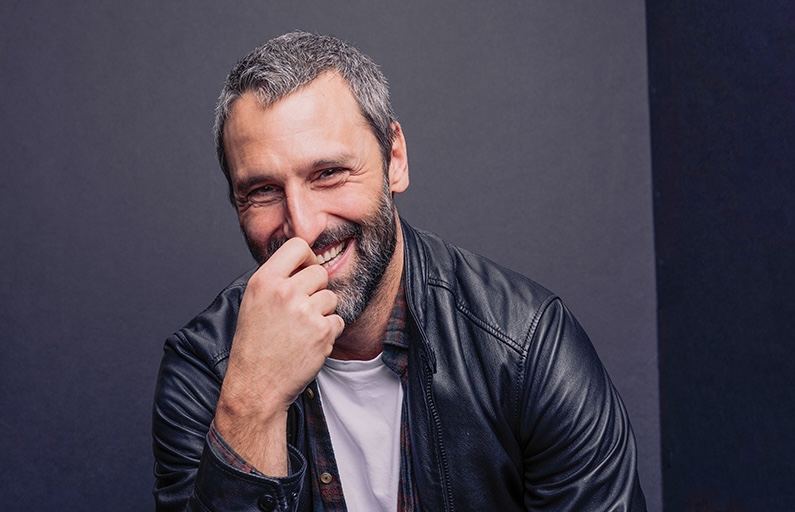












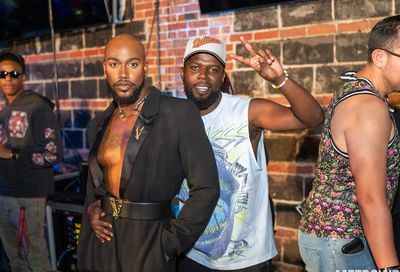
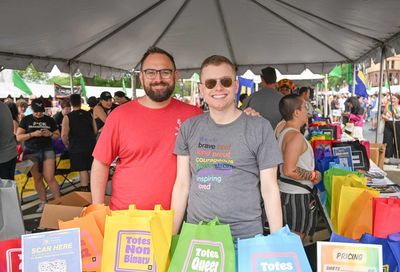
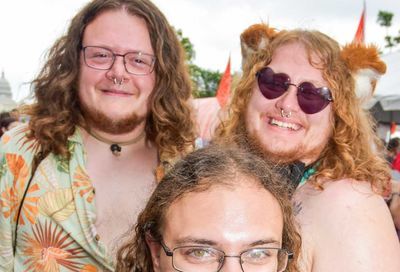
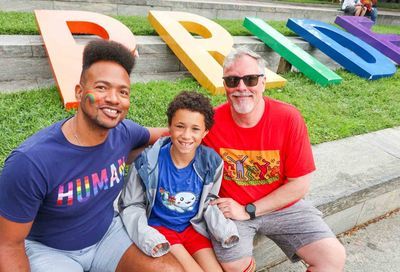
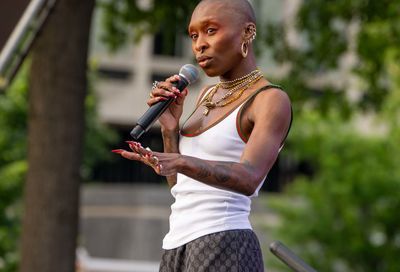

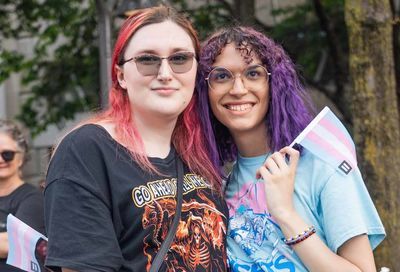
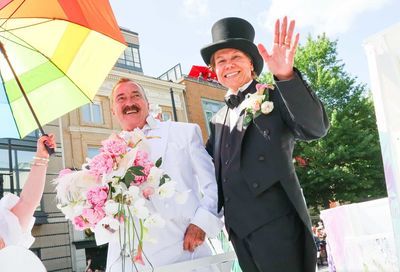
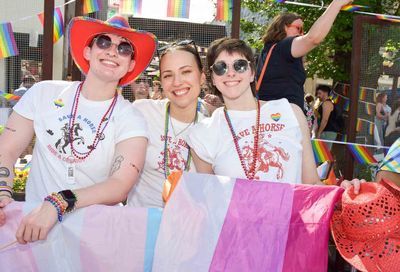
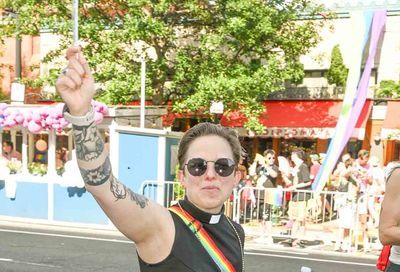
You must be logged in to post a comment.